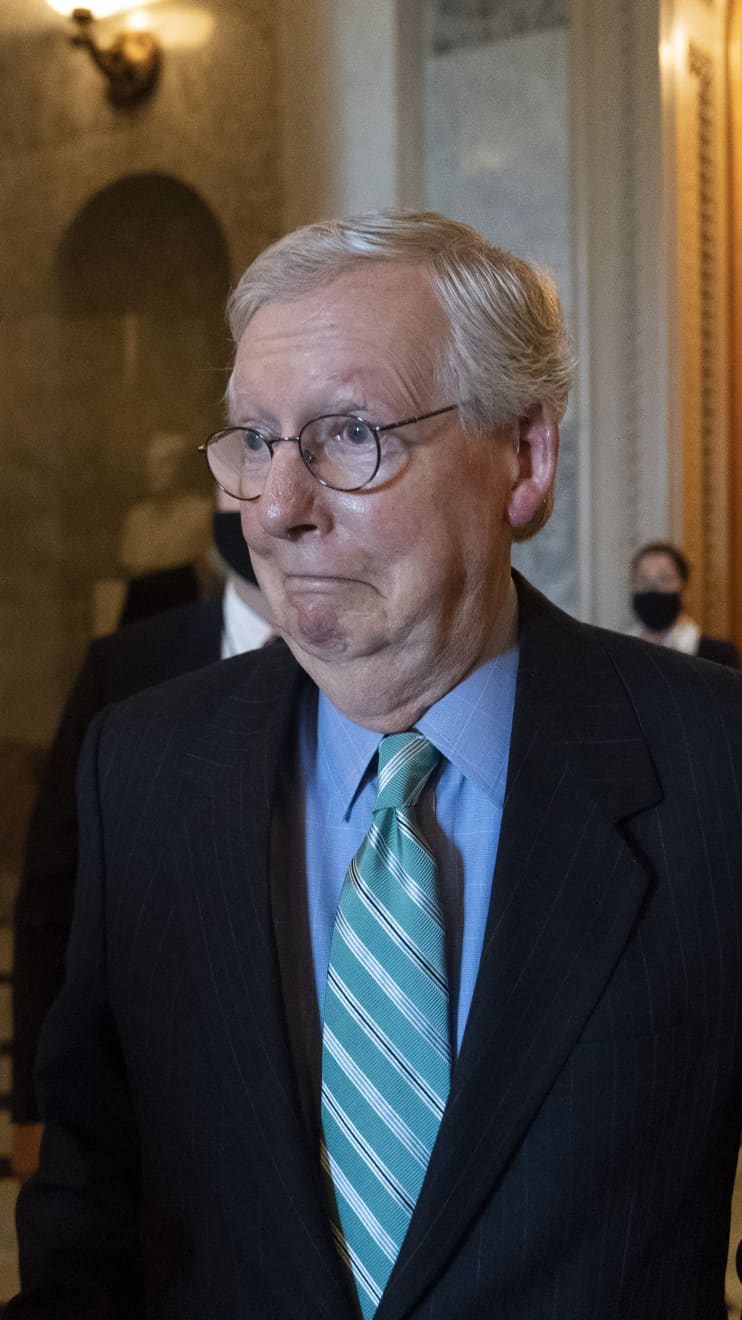The U.S. House of Representatives late Friday voted 228-206 to approve a bipartisan infrastructure bill, in a move that sends the $1 trillion package over to President Joe Biden to be signed into law.
The legislation’s passage represents a win for Biden and House Speaker Nancy Pelosi, who pushed ahead even as progressive Democratic lawmakers objected that the party’s $1.75 trillion social-spending and climate package wasn’t advancing as well.
Democratic lawmakers had been negotiating into the night as their leaders tried to round up sufficient support for the infrastructure measure. Progressives received a commitment from a group of five moderate Democrats to back the social-spending bill no later than the week of Nov. 15 as long as a key fiscal estimate came in as expected. That led Rep. Pramila Jayapal, the Democrat from Washington state who chairs the Congressional Progressive Caucus, to release a statement indicating that her members wouldn’t block the infrastructure bill.
The House of Representatives gaveled in early in the day with Democratic leaders hoping to approve both measures, but by midafternoon there had been no voting on them, with the delay due to a demand from the moderates for an impact estimate of the social-spending package by the nonpartisan Congressional Budget Office. The CBO isn’t expected to be able to provide a full estimate this week.
Democrats have a narrow House majority and can afford no more than three defections on legislation if there’s no Republican support for it. So top Democrats, with the help of the Congressional Black Caucus, came up with a workaround: a vote Friday on the infrastructure bill, with only a procedural vote on the social-spending bill, known as the Build Back Better Act.
However, progressive House Democrats then threatened they wouldn’t vote on Friday for the infrastructure bill, which is called the Infrastructure Investment and Jobs Act. They’ve long maintained that both measures should advance together. But Jayapal’s group backed down after the moderates’ commitment, which was backed by Biden.
The Congressional Progressive Caucus has nearly 100 members, so the infrastructure bill easily could have gotten voted down, even as more than a dozen House Republicans supported it.
It passed the Senate on a 69-30 vote nearly three months ago.
But Pelosi didn’t show signs of backing off her plan during a news conference in the late afternoon. “I do believe that there are a large number of members of the progressive caucus who will vote for the bill,” Pelosi told reporters. When asked if she had enough backing for the infrastructure measure, she said: “We’ll see, won’t we?”
Biden had called for action in a brief speech earlier Friday at the White House. As he hailed a stronger-than-expected October jobs report, the president urged House lawmakers to pass both the infrastructure and social-spending bills “right now,” arguing they will further boost the economy’s recovery and aid working families.
In a sign of last-minute wrangling, however, Biden said he was going back to his office to “make some calls” to lawmakers before his departure for the Colin Powell funeral service at the National Cathedral. He did not take reporters’ questions. The White House later said he was no longer planning to travel to Delaware on Friday as planned, instead staying in Washington.
The infrastructure measure now will go to the president to be signed into law, given that it already cleared the Senate. The social-spending package is likely to be changed in the Senate, where portions of it face opposition from conservative Democrat Joe Manchin of West Virginia.
“We will bring to the Floor the BIF and a rule for consideration of the Build Back Better Act,” Pelosi said in a letter to colleagues on Friday afternoon. BIF stands for Bipartisan Infrastructure Framework.
Progressive leader Jayapal dropped hints early Friday evening on Twitter that some read as indicating her group’s position was malleable. It was reported she had spoken directly with Biden.
Also: Infrastructure bill mandates new technology to prevent drunk driving — here’s how it would work
Plus: Here’s what’s in and out of Democrats’ big social-spending bill — for now
Pelosi had delayed planned votes in the House on the infrastructure bill several times previously, as Democratic lawmakers have struggled to agree on their spending proposals. The California Democrat at one point pledged a vote by Sept. 27 to a group of moderate House Democrats to get their support for a procedural vote for the social-spending measure but then ended up pushing back her timeline repeatedly.

Senate Minority Leader Mitch McConnell of Kentucky, shown en route to a policy luncheon last month, joined 18 other Republicans in voting for the bipartisan infrastructure bill in August.
AP/Alex Brandon
Pelosi also has grappled often with progressive House Democrats, who blocked the infrastructure bill pending changes in the Build Back Better Act, to which Democrats have now added provisions including paid leave.
When the bipartisan infrastructure bill passed on Aug. 10, Senate Minority Leader Mitch McConnell was among the 19 Republicans who joined with the chamber’s 48 Democrats and independents Angus King and Bernie Sanders to support the long-awaited measure. It has an overall price tag of about $1 trillion (the White House puts the figure at $1.2 trillion), with around $550 billion in new public-works spending above what already was expected in future federal investments.
Infrastructure stocks, as tracked by the Global X U.S. Infrastructure Development ETF
PAVE,
have gained 35% this year, topping the broad S&P 500 equity index’s
SPX,
advance of 25%. The main U.S. stock gauges
DJIA,
COMP,
closed at fresh record highs Friday after the encouraging jobs report.
Now read: These are the stocks for playing Biden’s infrastructure push, analysts say
Also: Here’s why the crypto industry is fretting over the $1 trillion infrastructure bill
